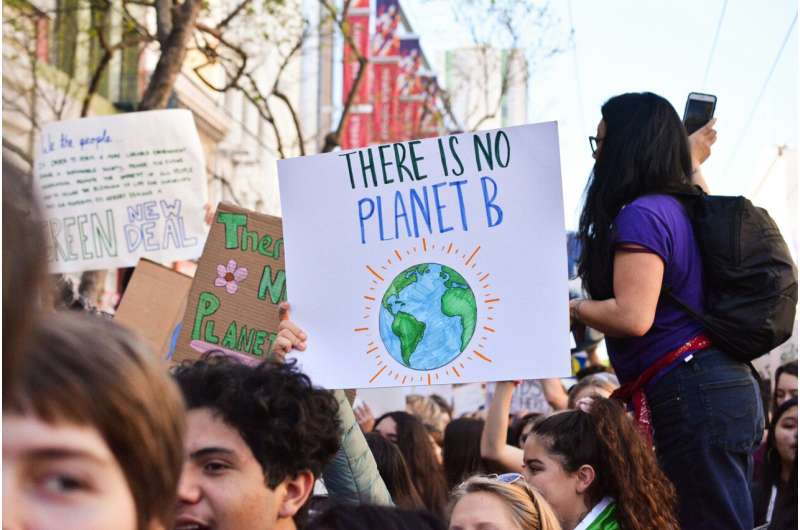You don't have to be a net zero hero—how focus on personal climate action can distract from systemic problems

Campaigns and social media often encourage people to make eco-friendly choices, like using less plastic or driving less. While these actions are important, focusing so much on what people do can distract from the much larger role that businesses and governments play in causing and solving environmental problems.
For example, some campaigns promote a narrative that implies that people should take the lead in fighting climate change by changing their behavior, recycling more, taking fewer flights or eating less meat.
While personal actions can help, there's a danger this way of thinking can put too much responsibility on consumers. These individual actions are not enough to .
By focusing so much on personal responsibility, we risk ignoring the systemic changes needed to . These include switching to renewable energy on a large scale, enforcing strict industrial regulations and redesigning cities to reduce dependence on fossil fuels.
Without these bigger steps, taken by governments and large organizations, we can't make real progress in tackling climate change.
Energy companies and trade groups have been particularly good at shifting blame to consumers. They promote products and habits that claim to lower personal carbon footprints while lobbying that would require real emission cuts from industries.
Fossil fuel companies have known about climate change but to delay action and shift blame to individuals.
Indeed, the carbon footprint calculator itself was developed in . The tool encouraged individuals to calculate their personal impact on the environment, focusing on activities like driving, energy use, and diet.
According to , this approach was part of a to shift public attention away from the significant environmental harm caused by corporations, particularly the fossil fuel industry.
Despite this narrative, many corporations have failed to address their own emissions. A recent study found that only 60% of companies met , and 31% failed to report any outcomes.
This lack of accountability highlights how many major companies neglect their responsibilities, raising serious concerns about their commitment to 2030 climate goals.
These tactics maintain the status quo and creates a cycle of guilt and failure for consumers. Many people feel overwhelmed, leading to demotivation and even .
Similar strategies have been used in other industries. For instance, the tobacco industry , focusing on personal choice while downplaying nicotine .
Shifting the focus
In into climate communication, I see how stories of guilt resonate with communities already facing misplaced blame. For example, in workshops with groups affected by austerity, people often felt guilty for not helping others more.
Over time, they realized this was due to failures in governance, not personal shortcomings. They saw a similar pattern in the climate crisis, learning to separate personal guilt from the larger roles of corporations and governments.
As a climate researcher and communicator, my job is to help move the conversation from personal guilt to shared responsibility and accountability. This shift empowers people as citizens, not just consumers, to demand action from leaders and industries.
Understanding that while personal responsibility is meaningful, the real power to create change lies with corporations and governments is vital. We need systemic change, not consumer guilt.
To tackle the climate crisis, we must make personal choices that reflect care for the environment. But we must also work together to demand that companies and governments adopt sustainable practices, for example through voting for leaders who prioritize environmental reform. The path to a sustainable future is collective action—not carrying the weight of guilt alone.
Provided by The Conversation
This article is republished from under a Creative Commons license. Read the .![]()



















